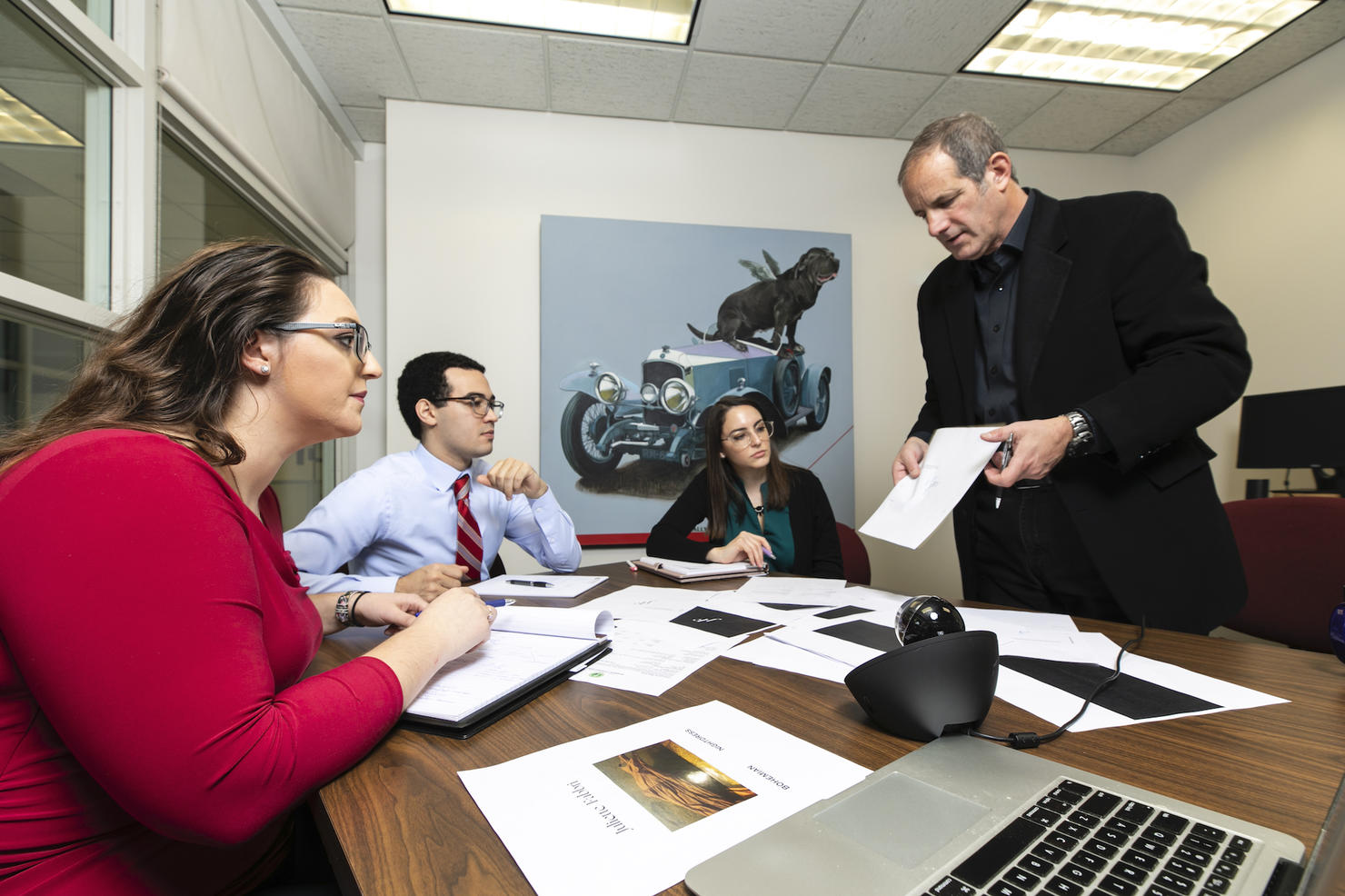What does it take to transform a cool idea into a business? Students at George Mason University’s Antonin Scalia Law School are finding out, by helping real-life entrepreneurs in the school’s new Innovation Law Clinic.
“It’s all about the students,” said professor Sean O’Connor, executive director of the Center for the Protection of Intellectual Property, who leads the clinic. “Students take the first cut at talking with clients and take the lead on deliverables, such as forming a corporation, doing contracts or filing a patent application.”

The first cohort includes third-year students Samantha Levin, Kayleen Hansen and Aris Hart, who have assisted a nonprofit working to get incorporated and gain tax-exempt status, a Mason student developing technology that may be patentable, and a fashion designer navigating the legal intricacies for branding her business.
“One reason I decided to go to law school was to take my interests and skills and direct them toward helping people—here we can help people be as successful as they can in their endeavors,” Levin said. “It’s been absolutely amazing to take what we’ve learned in classes and learned doctrinally and apply that to real-life practice, real-life clients, and help people in a way that lawyers can.”
No two ideas are alike, and the clinic capitalizes on this to advance students’ skillsets. As the students provide clients with resources, information and advice, they learn how to tailor the legal work to a client’s unique project.
“You do get a lot more hands-on interaction, and you’re getting practical experience that you may not otherwise get,” Hansen said. “Innovation and entrepreneurship are not necessarily the easiest areas to break into as a law student.”
That’s one of the biggest draws of the course, Hart said.
“Jumping into the clinic is a great way to [enter this field of law] because you are able to do it under the supervision of an attorney and really get your feet wet in a way that is great for the client, because they get a free legal services, and it’s good for students because we get experience,” Hart said.
The clinic is often the first time that students start to grapple with the complexities of working with a real client, O’Connor said.
“In the clinic we give students a chance to start learning what they don’t know on the application side of things,” O’Connor said. “Law schools used to just teach theory, so students would get into law firms but feel like they had no idea what they’re doing—this attempts to close that gap.”
As the clinic progresses, O’Connor said he plans for other units across the university to be involved, and have the clinic serve the region’s innovation ecosystem.
“We’re hoping to provide a space for folks who don’t have the money to hire an attorney to receive support and advice,” he said, adding that entrepreneurs often run ahead and do things that cause legal problems later on. “We hope to have a lot more people succeed or fail on the merits of their idea, not because they made some misstep with a legal document.”
